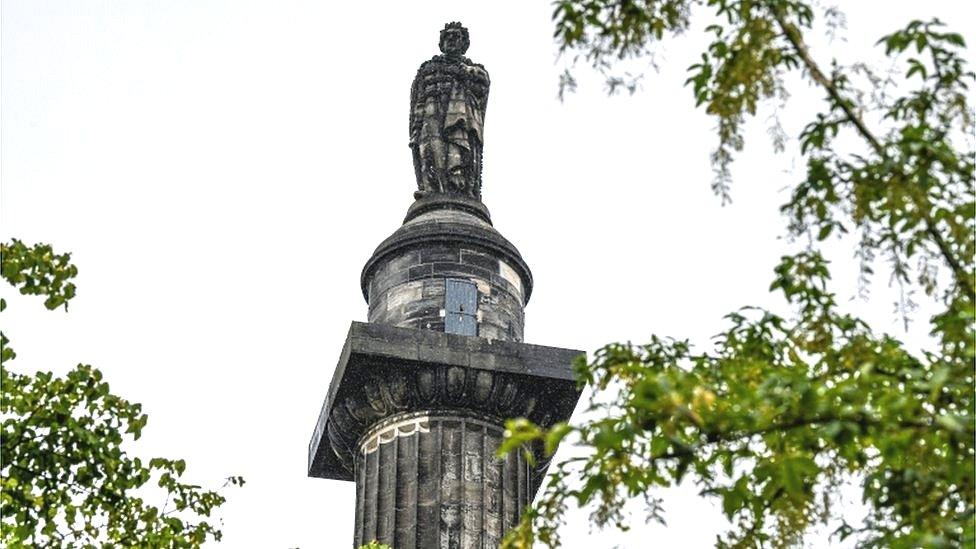Council installs new slavery plaque at Edinburgh's Melville Monument
- Published
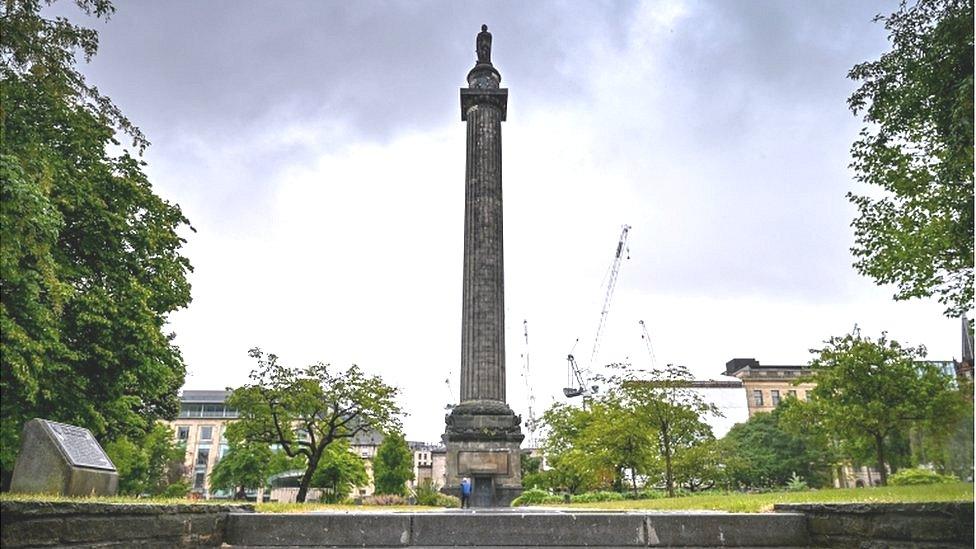
The statue of Dundas sits on a tall column in St Andrew Square
A replacement plaque has been installed by Edinburgh's council at the base of the controversial Melville Monument.
The previous plaque was removed last September by a monument group led by a descendant of Henry Dundas, in whose honour the statue was erected in 1827.
It said the 18th century politician delayed the abolition of the Atlantic slave trade, resulting in the enslavement of half a million Africans.
But the monument group labelled the plaque "cartoonishly inaccurate".
City of Edinburgh Council had threatened legal action against Bobby Dundas and the Melville Monument Committee, who said they had acted "completely within the law" and with "all the necessary permits" from the owners of St Andrew Square.
The new replacement plaque features the same wording as the original one removed in September.
The council said it provided "historical context to the role of Henry Dundas".
Council leader Cammy Day said it would "not allow the actions of a minority to derail the important ongoing work to address the legacies of slavery and colonialism in our city".
He added: "Following the refusal of the Melville Monument Committee to return the original plaque, we filed an official report with Police Scotland in October.
"This investigation is ongoing, and our legal team will continue to monitor the situation closely."
Mr Day said the council would seek to recover the costs of the replacement plaque from the Melville Monument Committee.
Police Scotland said that no criminality had been established in their initial investigation last year.
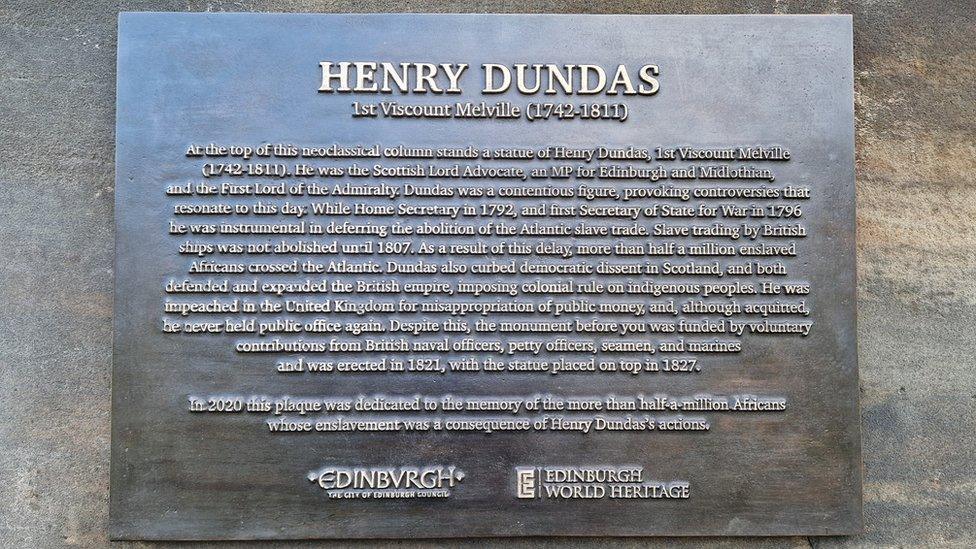
The new plaque, installed on Monday, has the same wording as the original brass plate added to the structure in 2021
The plaque states the 1st Viscount Melville - the most powerful politician in Scotland in the late 18th Century - was "a contentious figure, provoking controversies that resonate to this day".
It was installed by the council following an independent review chaired by Sir Geoff Palmer, Scotland's first black professor.
The plaque states that Dundas was "instrumental in deferring the abolition of the Atlantic slave trade".
"As a result of this delay, more than half a million enslaved Africans crossed the Atlantic."
It adds that the plaque is dedicated "to the memory of the more than half a million Africans whose enslavement was a consequence of Henry Dundas's actions".
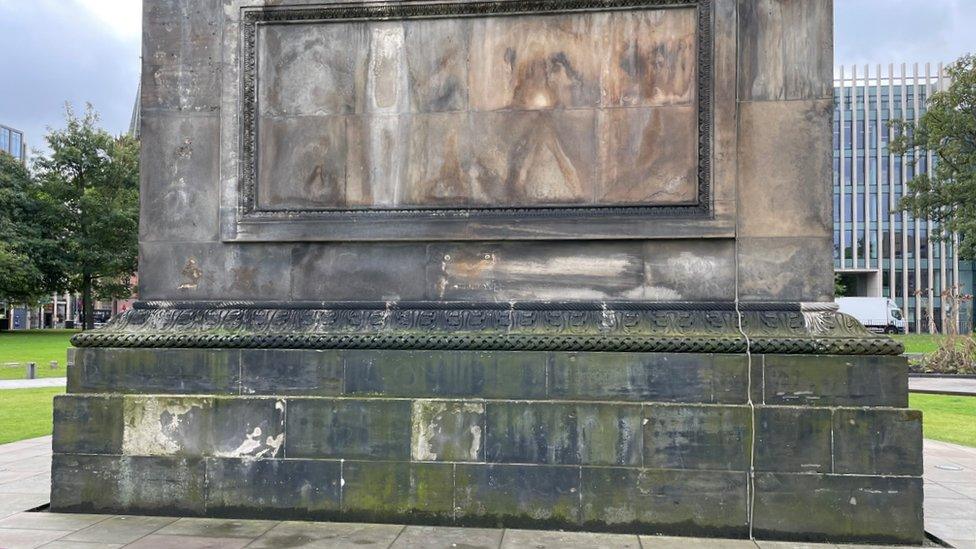
The controversial plaque was removed last September
Bobby Dundas had previously criticised the inscription as being written by "non-historians at the height of the Black Lives Matter demonstrations in 2020".
He argued that his ancestor was a pragmatist whose call for "gradual" abolition helped ensure the legislation was eventually passed.
Mr Dundas added the council had "no authority" to install the plaque without consent of the owners in the first place.

Who was Henry Dundas?
According to National Records of Scotland, Henry Dundas was known as the "uncrowned king of Scotland" and "Harry the ninth" due to the extent of his political power.
He entered the Faculty of Advocates in 1763 and became MP for Midlothian from 1774.
He was the trusted lieutenant of British Prime Minister William Pitt and the most powerful politician in Scotland in the late 18th century.
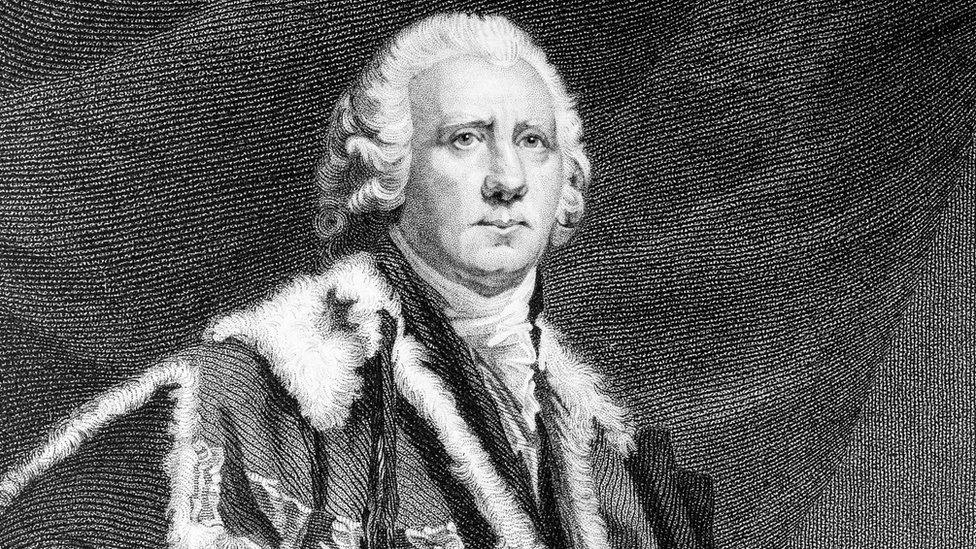
Dundas was born on the Royal Mile in 1742
He was a controversial figure during his own lifetime, a defender of the British Empire and its expansion.
While home secretary in 1792 and first secretary of state for war in 1796 he was said to be instrumental in deferring the abolition of the Atlantic slave trade.
Slave trading by British ships was not abolished until 1807.
However his descendants and supporters say he was an abolitionist, making sure the process was gradual so it would get through legislation and became law.
- Published2 March 2023
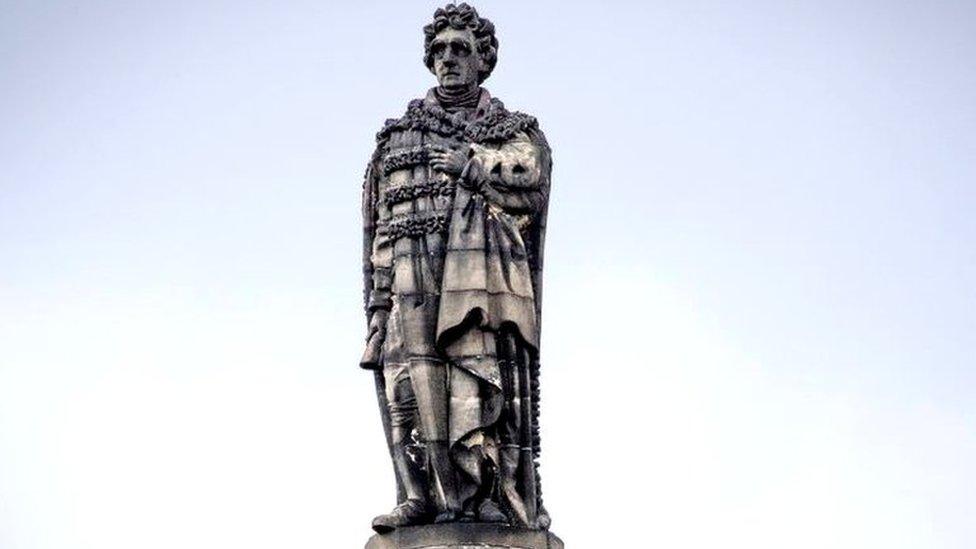
- Published14 June 2020

- Published11 June 2020
